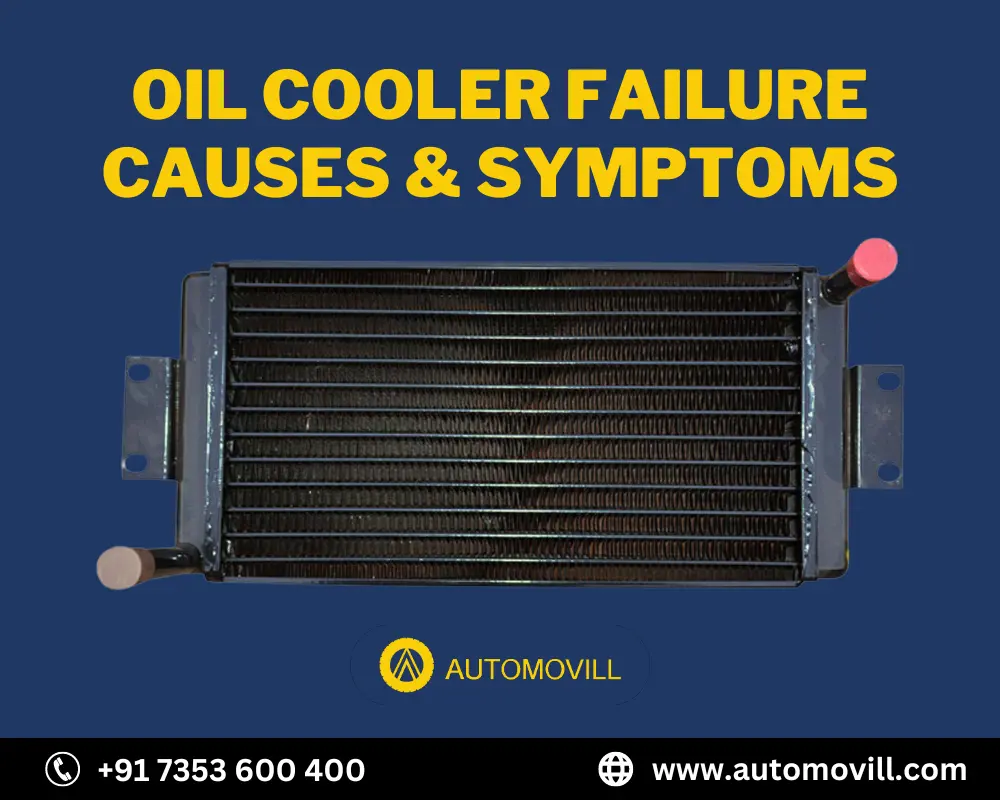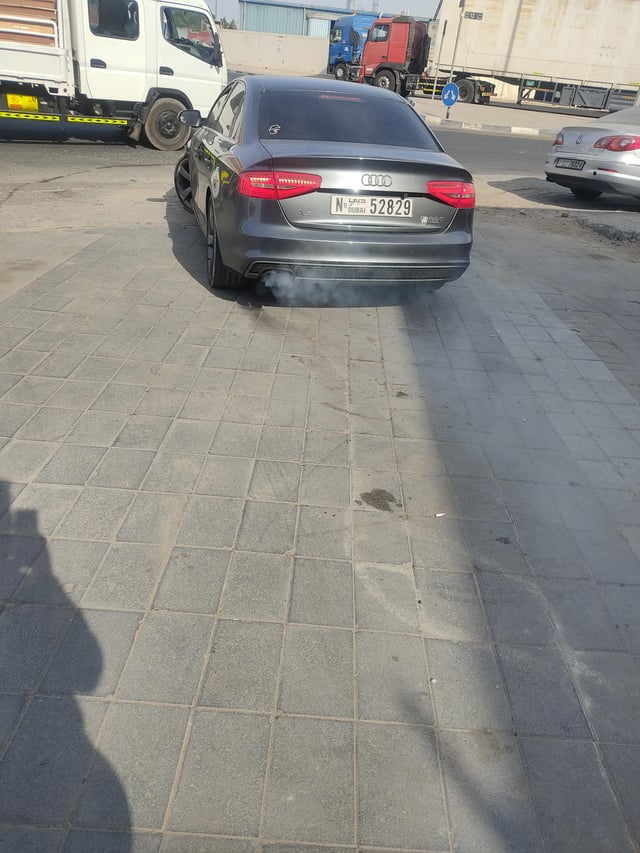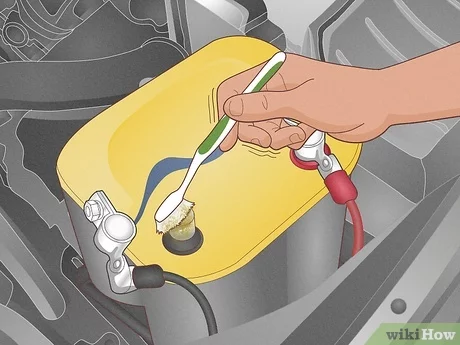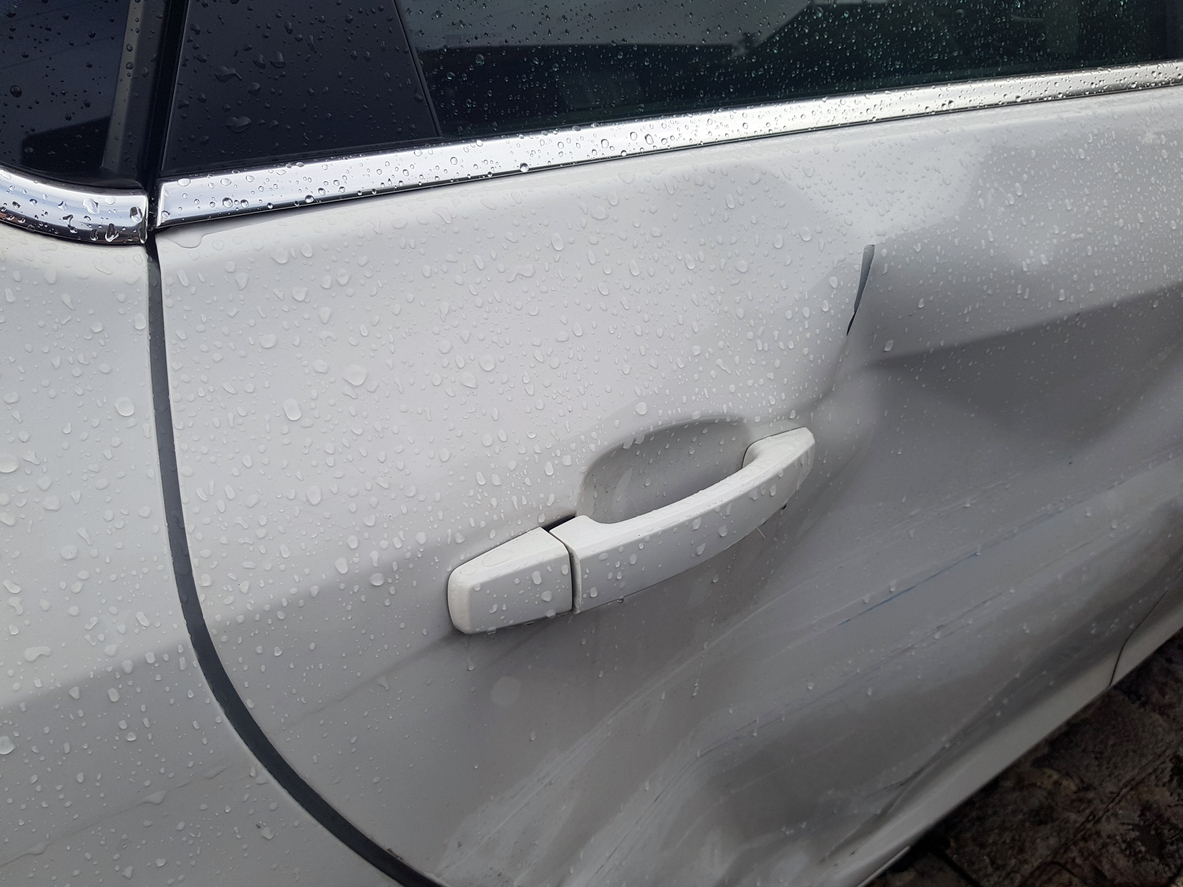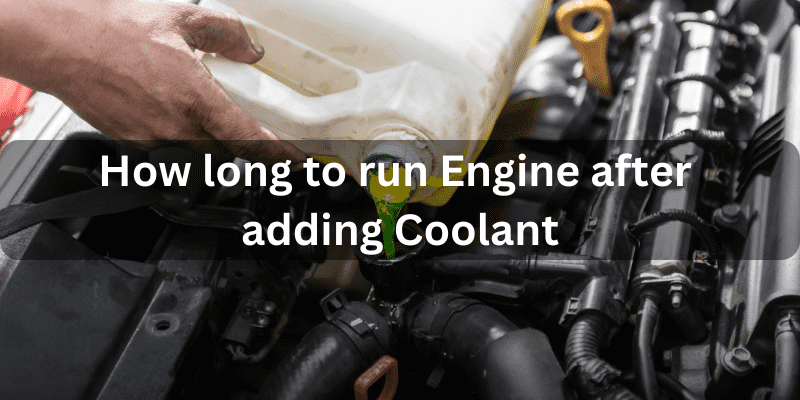What Causes Oil Cooler Failure
Oil cooler failure often results from internal corrosion or external damage. Leaks or clogs within the cooler also lead to failure.
Understanding the common causes of oil cooler failure is crucial for vehicle maintenance and performance. The oil cooler, an important component in managing the engine’s temperature, ensures optimal operation by dissipating heat. Over time, this component may succumb to various stresses, including aggressive corrosion from engine coolant contamination or the accumulation of debris leading to blockages.
Physical damage from vibrations or impacts can create leaks that hinder functionality. Ensuring regular check-ups and addressing early signs of distress, such as oil leaks or overheating, can prevent extensive damage and maintain engine efficiency. Prompt attention to potential issues and routine maintenance will extend the life of an oil cooler and keep your vehicle running smoothly.
Introduction To Oil Cooler Failure
An oil cooler plays a critical role in maintaining your engine’s health. Think of it as a radiator’s little helper, keeping your engine oil cool under tough conditions. When it fails, the results can be damaging. This section will explore the causes behind oil cooler failure, highlighting how it can impact your vehicle’s performance.
The oil cooler works hard to prevent overheating by transferring heat away from the engine oil. High temperatures can lead to oil becoming too thin, which diminishes its protective capabilities. Understanding the failure signs is vital for a timely fix.
Role Of Oil Coolers In Engine Performance
Oil coolers contribute significantly to engine performance. Their function keeps the oil at optimal temperatures, ensuring the engine runs smoothly. Overheating is a major enemy for engine components. By keeping the oil cool, oil coolers help in:
- Preventing thermal degradation of engine oil.
- Maintaining lubrication quality, which reduces wear and tear.
- Ensuring consistent oil viscosity, critical for engine protection.
Common Signs Of Oil Cooler Failure
Oil cooler failure can manifest through different symptoms. Spotting these early can save your engine from severe damage. Look out for:
| Sign | Description |
|---|---|
| Overheating Engine | Oil cooler issues can lead to high engine temps. |
| Oil in Coolant | Leakage might mix oil into the coolant system. |
| Coolant in Oil | This indicates a possible failure of the cooler seals. |
| Exterior Oil Leaks | Broken cooler may leak oil outside the engine. |
These indicators suggest that it’s time to inspect your oil cooler. Ignoring these signs can lead to costly repairs and diminished engine life. An expert mechanic can diagnose the problem and suggest the best course of action.
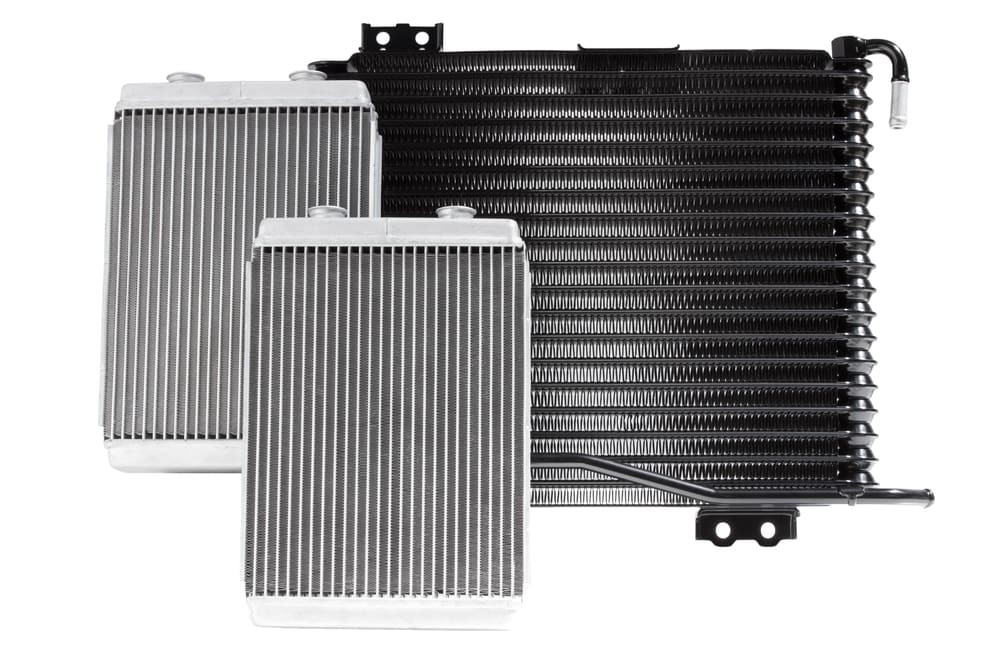
Credit: www.yourmechanic.com
Mechanical Wear And Tear
Mechanical Wear and Tear often goes unnoticed until it leads to major failures.
Oil cooler systems play a crucial role in maintaining engine performance. Just like any mechanical component, they suffer from wear and tear. This can cause them to eventually fail, often with costly consequences.
Impact Of Age And Usage On Oil Coolers
As oil coolers age, their efficiency tends to decline. Regular usage stresses oil cooler components, leading to wear on internal parts. These stresses can lead to cracks or leaks, which hamper the cooler’s ability to regulate oil temperature.
- Seal degradation over time permits oil leaks.
- Continuous thermal cycling weakens structural metals.
These factors contribute to the cooler’s reduced performance and eventual failure.
Preventative Maintenance To Reduce Wear
Regular maintenance is key in preventing premature oil cooler failure. By taking preventative steps, the life span of an oil cooler can be extended substantially.
Here’s a simple maintenance checklist:
- Regularly check for oil leaks or obvious damage.
- Inspect hoses and connections for wear and ensure tight seals.
- Change oil and filters at manufacturer’s recommended intervals.
- Clean external surfaces to ensure efficient heat dissipation.
Maintaining your oil cooler can result in more reliable engine performance and reduced repair costs over time. By addressing wear and tear proactively, you protect your engine from the dangers of overheating and lubrication issues.
Thermal Stress And Overheating
Oil coolers maintain an engine’s operational health. Thermal stress and overheating challenge oil cooler efficiency. High temperatures weaken oil coolers over time. This results in failures. Let’s explore ways to keep oil coolers running smoothly.
Effects Of High Temperatures On Cooler Materials
Heat impacts oil cooler materials. Mainly, it affects:
- Seals and gaskets can harden and crack.
- Metal parts may warp or corrode.
- Oil properties degrade, reducing lubrication.
Oil coolers made from aluminum, for instance, face expansion and contraction. Constant fluctuation could lead to fractures. In turn, this causes leaks.
Cooling System Maintenance To Prevent Overheating
Regular maintenance prevents breakdowns. Important steps include:
| Step | Action |
|---|---|
| 1 | Check coolant levels often. |
| 2 | Inspect for leaks and damage. |
| 3 | Change the oil as recommended. |
| 4 | Flush cooling system periodically. |
Focus on oil quality, too. Use the correct oil type for your engine. Frequent check-ups detect problems early. This protects the oil cooler from the ravages of heat.
Corrosion And Material Degradation
Corrosion and Material Degradation spell trouble for oil coolers. These coolers are vital for engine health. Over time, they face threats like rust and other forms of corrosion. Understanding why this happens helps us prevent damage. Let’s explore the main culprits behind oil cooler failure.
Role Of Corrosive Agents In Cooler Deterioration
Oil coolers constantly battle corrosive agents. These substances come from different sources. They include chemicals in coolant, moisture, and even environmental factors. Left unchecked, these agents attack the cooler’s materials. The result can be leaks or efficiency losses.
- Chemical Reactions: Coolants with harsh additives eat away at metal.
- Moisture: Leads to rust, especially when mixed with salt in coastal areas.
- Oxygen: Fuels oxidation, a form of corrosion that weakens metal over time.
Materials And Design Considerations For Longevity
Durable materials and smart design keep oil coolers running longer. Manufacturers use a variety of methods to strengthen coolers against corrosion.
| Material Used | Properties | Corrosion Resistance |
|---|---|---|
| Aluminum | Lightweight, good heat conductor | Often treated or alloyed for extra protection |
| Stainless Steel | Strong, resilient, handles high temperatures | Very resistant, especially with passivation |
| Brass | Malleable, good for complex shapes | Reasonably resistant, often combined with other metals |
Choosing the right cooler design also matters. Some designs have fewer joints, reducing leak points. Others use coatings that fend off corrosive elements. A well-made cooler resists wear and performs longer.
Improper Installation And Human Error
An oil cooler plays a crucial role in maintaining your engine’s performance, and its failure could spell disaster. But what often goes unnoticed are the pitfalls of improper installation and the risks it carries.
Consequences Of Incorrect Oil Cooler Installation
When an oil cooler isn’t installed correctly, the consequences can be severe. From leaks that develop due to misaligned parts to reduced oil flow causing engine overheating, each issue can significantly diminish your vehicle’s reliability. Increased wear and tear on the engine components is also a likely outcome.
- Oil Leaks: Misalignment of oil cooler connections can lead to costly leaks
- Engine Overheating: Inadequate oil flow from a faulty installation raises the risk of overheating
- Premature Wear: Components can degrade faster when the cooler fails to regulate oil temperature
Best Practices For Ensuring Proper Installation
Guaranteeing the proper installation of an oil cooler is paramount. Follow these best practices to avoid the risk of failure:
- Refer to the manual and adhere strictly to the manufacturer’s guidelines
- Use the right tools to ensure tight and secure fittings
- Conduct a pressure test post-installation to check for leaks
| Step | Action |
|---|---|
| 1 | Read the installation manual thoroughly |
| 2 | Gather all necessary tools and parts |
| 3 | Install following the precise sequence advised |
| 4 | Perform checks for any potential issues |
Remember to double-check all connections, and don’t rush the installation process. Patience and precision are key factors in avoiding errors that could lead to oil cooler failure and subsequent engine damage.

Credit: garage808.co.za
Conclusion: Enhancing Oil Cooler Lifespan
Maintaining an oil cooler is crucial for engine performance. A failing oil cooler can lead to serious engine problems. Regular check-ups and maintenance practices can increase an oil cooler’s lifespan.
Key Takeaways On Avoiding Oil Cooler Failure
- Regularly check for leaks to prevent coolant contamination.
- Monitor oil temperature to avoid overheating.
- Ensure proper coolant levels for optimal heat dissipation.
- Replace old components like gaskets on time.
Future Advancements In Oil Cooler Technology
Technological improvements aim to make oil coolers more reliable. Innovative materials and design upgrades will likely increase efficiency.
- Research on heat-resistant materials could lead to longer-lasting coolers.
- Smart monitoring systems may predict failures before they occur.
- Developments in thermal management could enhance overall performance.
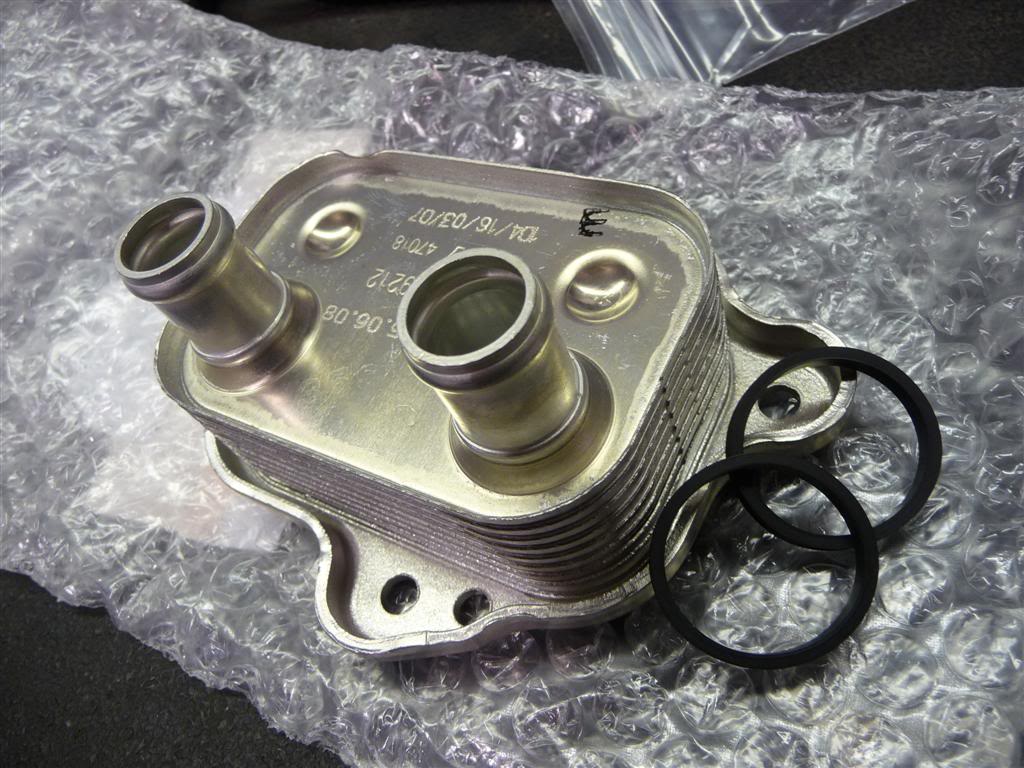
Credit: www.northamericanmotoring.com
Frequently Asked Questions Of What Causes Oil Cooler Failure
What Are Common Signs Of Oil Cooler Failure?
Oil cooler failure often presents as oil leaks, overheating, or contaminated coolant. These symptoms indicate the oil cooler’s inability to maintain optimal engine temperatures, potentially leading to further engine damage if not addressed promptly.
How Does An Oil Cooler Work?
An oil cooler helps regulate engine temperature by dissipating excess heat from the engine oil. It typically uses air or coolant to cool the oil, which in turn reduces the engine’s operating temperature, maintaining performance.
Can A Faulty Oil Cooler Affect Engine Performance?
Yes, a faulty oil cooler can directly impact engine performance. It can lead to overheating, reduced lubrication, and possible engine damage due to the inability to maintain proper oil temperatures.
What Triggers Oil Cooler Failure?
Oil cooler failure can be triggered by corrosion, clogging, vibration damage, or manufacturing defects. Regular maintenance and prompt repair or replacement of damaged components can help prevent this failure.
Conclusion
Understanding the factors leading to oil cooler failure is crucial for maintaining your vehicle’s health. Regular checks and prompt attention to red flags can save you time and money. Remember to consult with a professional if you suspect your oil cooler is compromised.
Safeguard your engine’s performance by staying vigilant to these common culprits.

